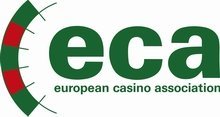
(Jamma) On November 12, representatives of the European Casino Association (ECA) met in the prestigious Grand Casino of Brussels for the launch of the new anti-money laundering task force, which will have the task of communicating the ECA's efforts towards the fight against recycling of dirty money by bringing together pan-European best practices on money laundering risk assessments and so-called “suspicious money laundering” behavior in casinos.
Heliodorus Giner, general secretary of the Spanish Casino Association and member of the Board of ECA, spoke proudly at the event, underlining “the different implementation systems of the anti-money laundering task force in place in the different member states of the European Union, and of the need to communicate our common strategy to address this issue in the best possible way and to enforce current European anti-money laundering laws”.
The group discussed at length the new standards related to the Financial Action Task Force and the main changes expected with the upcoming revision of the European Third Anti-Money Laundering Directive.
Current anti-money laundering obligations, under the EU directive, require customer identification, verification mechanisms, customer due diligence; these obligations establish the need to monitor the transactions of suspicious customers and require a risk assessment in cases where money laundering is suspected.
“ECA's lawyers argue that these rules must be applied to the entire gaming sector, therefore also to sports betting and online gambling” explained Giner, who went on to invite the EU to “make sure that the review of the European anti-money laundering directive is in line with FATF standards worldwide, thus increasing the threshold for customer due diligence to 3000 euros for each individual transaction, instead of 2 euros”. Giner further explained that, just like other sectors affected by anti-money laundering legislation, the ECA requires public authorities to provide companies with lists of so-called “politically exposed persons” (PEPs), i.e. lists of people who are considered to be at risk in terms of money laundering and therefore require increased attention.
During the event, expert representatives from Belgium, Sweden and the Netherlands presented their national policies and implementation systems for the prevention of money laundering. Fundamental questions were also addressed ranging from the need for policymakers to understand that casinos are often in the best position to identify real money laundering risks, to questions such as “What kind of behavior is considered 'suspicious' in your homes by game?" and how different casinos monitor suspicious customers.
With this new Anti-Money Laundering Task Force, the European Casino Association believes it will not only be able to embrace the many challenges casinos face in their anti-money laundering enforcement mechanisms, but will also be able to communicate the commitment of its members towards a better fight against money laundering in their casinos.










